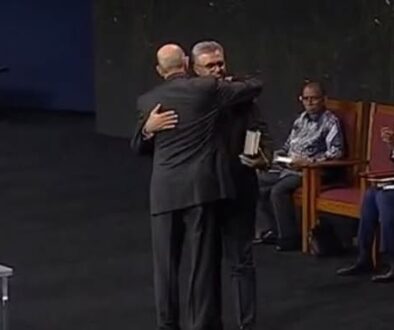WAU Partners with Sligo Church for Summit on LGBTQ: Pastoral and Theological Perspectives
14 March 2023 |
For the last 43 years, the Fordham Department of Religion at Washington Adventist University (WAU) has hosted the prestigious G. Arthur Keough Lectureship, a major academic event open to the community. In the past three years especially, the Lectureship has shifted its focus to the discussion of current issues affecting the church. It has evolved into a two-day summit involving students and surrounding church/community leaders in short presentation sessions and panel discussions, beside the usual presentations by the keynote speaker.
After discussions about diversity at last year’s event, many of the leading participants suggested the emphasis on LGBTQ issues for this year’s Lectureship. The chair of the Fordham Department of Religion, Dr. Olive Hemmings, is spearheading the event.
“This issue continues to fester as more and more LGBTQ persons who seek the life of Christ feel estranged from the church and religion in general, and even question their own humanity,” says Hemmings. “Our theme will be ‘LGBTQ: Embracing God’s Image and Building a House of Prayer for Every Human.'”
One of the guest panelists and respondents will be Paul-Anthony Turner, a graduate of Andrews University’s Theological Seminary and current doctoral student of philosophy at the University of Kentucky. Paul-Anthony has served as pastor, interfaith coordinator, and social justice advocate throughout his academic career.
“We’d like to encourage the Adventist Church to be truly open to the many perspectives on these matters, instead of claiming that we already know the truth,” says Turner. “The Word of God is alive and active and much broader than our mere interpretations can ever grasp of it. We must remain open to the possibility of new paradigms of biblical sexuality if we are to respect the Word of God as the Word of God. I look forward to the breadth of perspectives that this summit will present.”
Other participants will include Dr. Sigve Tonstad, Dr. Dilys Brooks, Alicia Johnston, Patricia Prasada-Rao, and Daniel Xisto. Their perspectives include systematic theology, practical theology, personal experience, pastoral experience, community development, chaplaincy, and more. Coordinators are adamant that the scope of the summit will not aim to address wider culture wars over lifestyles or legal issues. The aim of the summit remains focused on the affirmation of humanity in its diverse manifestations, which is to be considered fundamental to the conversation.
Hemmings feels that a Biblical approach will ultimately be what moves the church on this topic. “I am hoping that the church can continue to grow in ministry for the LGBTQ community based on a prophetic approach to the issue as modeled by the prophet Isaiah. The prophet calls upon a community which by law excludes the gender non-conforming eunuch and gentile to include them in God’s house which is ‘a house of prayer for all people’ (Isaiah 56). I hope that the church will begin to challenge itself on what this inclusion means.”
Turner also appeals to a more helpful hermeneutic when reading the Bible. “I’m hoping that people will come away with not only a greater appreciation of the Word of God, but also the importance of letting the well-being of LGBT people bear upon the reading of the text. Often, the LGBT lens is said to ‘get in the way’ of a so-called ‘objective’ reading of Scripture. We need to recognize that a reading of the text that does not ‘read’ the lives of queer people at the same time is not the reading of Scripture at all.”





